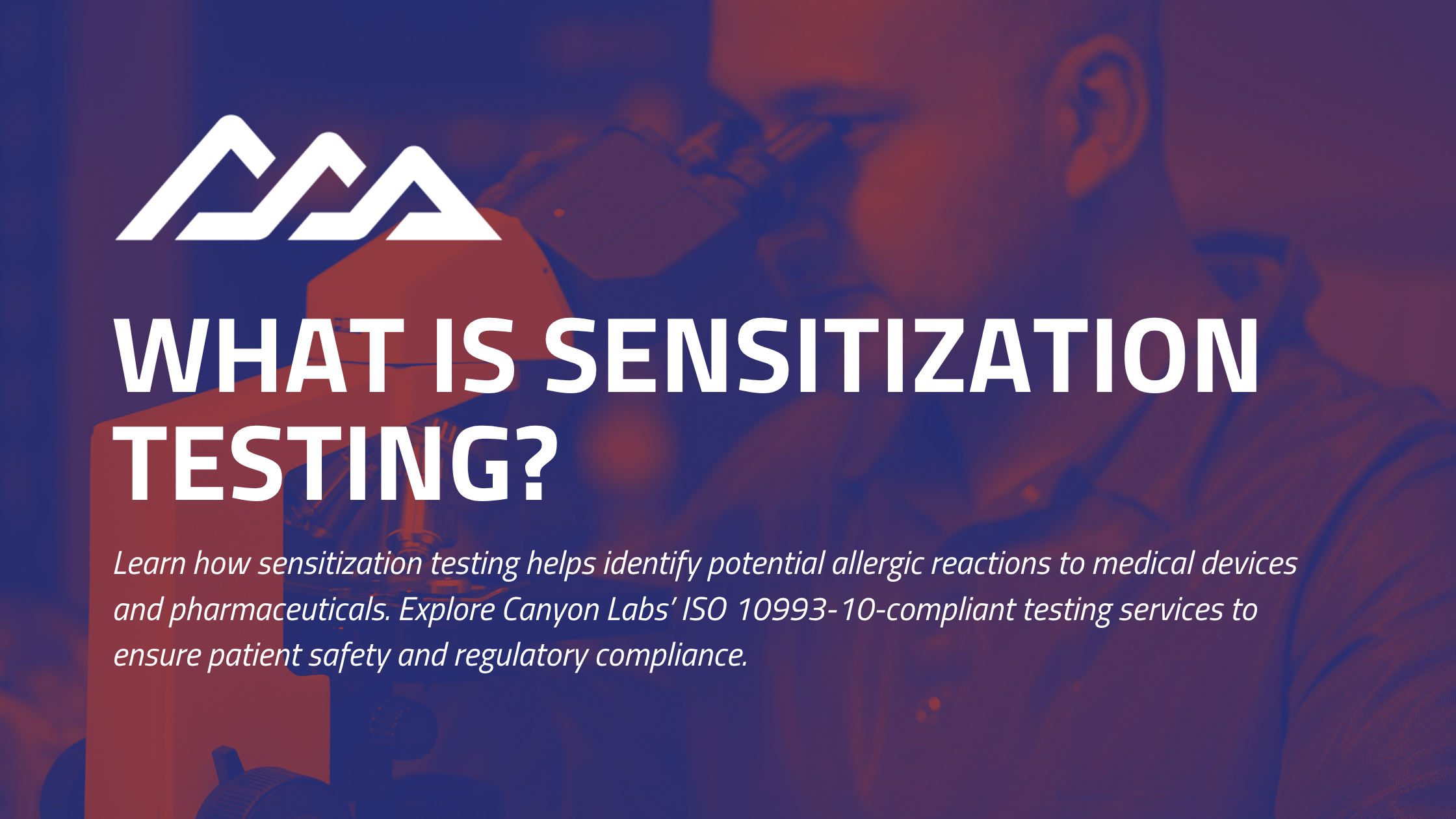Introduction
Sensitization testing is designed to rule out the potential for allergic reactions that can result from exposure to a medical device, material, or pharmaceutical product. These delayed hypersensitivity reactions can occur when the body’s immune system identifies a material as a threat, triggering an inappropriate immune response.
The testing process is typically conducted in vivo and includes three main phases:
- Induction Phase: The test material is applied multiple times to expose the body to the substance.
- Exposure Phase: The body’s reaction to repeated exposure is monitored.
- Challenge Phase: The material is reapplied to observe if a hypersensitivity reaction develops, confirming the immune system’s response.
Through these phases, delayed hypersensitivity reactions are carefully evaluated to ensure the product is safe for its intended use.
Why Sensitization Testing Matters
Sensitization testing is essential for protecting patients and ensuring compliance with regulatory standards such as ISO 10993-10, which focuses on the biological evaluation of medical devices for sensitization. By identifying potential allergic reactions early in development, manufacturers can:
- Ensure the safety of their products.
- Avoid costly recalls or delays in regulatory approvals.
- Build trust with healthcare providers and patients.
Canyon Labs: Raising the Standard in Sensitization Testing
At Canyon Labs, we offer comprehensive sensitization testing as part of our biocompatibility services. With our expertise in sensitization testing, we can help ensure your medical device or pharmaceutical meets regulatory requirements to deliver safe, effective products.

